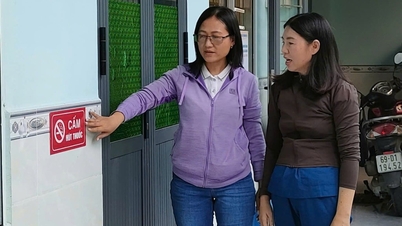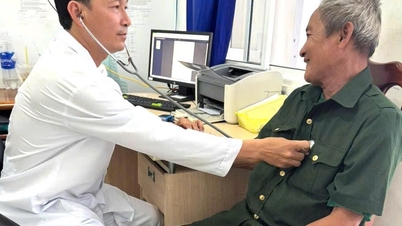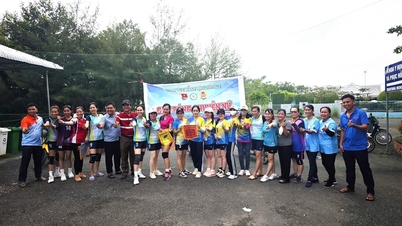Influenza viruses are highly contagious. If just one person is infected in a closed environment, the virus can easily spread into the air and infect others. The World Health Organization (WHO) estimates that each year there are about 3–5 million cases of severe influenza worldwide and between 290,000 and 650,000 deaths due to influenza-related complications. In Vietnam, influenza occurs year-round with two peaks in the summer and winter-spring. Common strains of influenza viruses include influenza A (H1N1, H3N2) and influenza B, which are capable of continuous mutation, making control and prevention difficult.
Influenza not only affects personal health but also has a major impact on the economy and society. People with influenza often have to miss school and work, reducing productivity and causing expensive medical expenses. For people with underlying diseases such as cardiovascular disease, diabetes, and asthma, influenza can make the disease worse, even leading to pneumonia or respiratory failure. Therefore, proactively preventing influenza is extremely necessary to protect the health of yourself and the community.
To effectively prevent influenza, the Ministry of Health recommends that people get vaccinated against influenza every year, which is the simplest and most effective measure. Because influenza viruses change frequently, annual booster shots help the body develop antibodies to protect against new strains of the virus. In particular, the elderly, pregnant women, children, people with chronic diseases and health workers are the groups that should be prioritized for vaccination.
In addition, each person needs to practice good personal hygiene and maintain a clean living environment. Wash your hands regularly with soap and clean water; cover your mouth and nose when coughing or sneezing with a tissue or your elbow; avoid touching your eyes, nose, or mouth without washing your hands. When you have symptoms of fever, cough, runny nose, headache, fatigue, etc., you should rest, wear a mask, and limit contact with others to avoid spreading the disease. Homes, workplaces, and schools need to be airy, clean, well-lit, and have good air circulation.
In addition, maintaining a healthy lifestyle also helps improve resistance to flu: eat nutritious food, get enough sleep, exercise regularly and keep a comfortable spirit. When signs of serious illness such as high fever, difficulty breathing, chest pain, fatigue or underlying diseases appear, you need to go to a medical facility immediately for timely examination and treatment, absolutely do not arbitrarily use antibiotics or antiviral drugs without a doctor's prescription.
Influenza is a preventable disease if the community raises awareness and takes proactive action. Full vaccination, hygiene, health promotion and proper treatment when sick are practical measures to help each person protect themselves and those around them. Actively preventing influenza is not only the responsibility of each individual but also an action that contributes to building a healthy, safe and sustainable community.
Source: https://soyte.camau.gov.vn/bai-khoa-hoc-chinh-tri-va-xa-hoi/phong-chong-benh-cum-bao-ve-suc-khoe-cong-dong-290162



![[Photo] Prime Minister Pham Minh Chinh chaired a meeting to discuss solutions to overcome the consequences of floods in the central provinces.](https://vphoto.vietnam.vn/thumb/1200x675/vietnam/resource/IMAGE/2025/10/29/1761716305524_dsc-7735-jpg.webp)
![[Photo] Flooding on the right side of the gate, entrance to Hue Citadel](https://vphoto.vietnam.vn/thumb/1200x675/vietnam/resource/IMAGE/2025/10/28/1761660788143_ndo_br_gen-h-z7165069467254-74c71c36d0cb396744b678cec80552f0-2-jpg.webp)


![[Photo] National Assembly Chairman Tran Thanh Man received a delegation of the Social Democratic Party of Germany](https://vphoto.vietnam.vn/thumb/1200x675/vietnam/resource/IMAGE/2025/10/28/1761652150406_ndo_br_cover-3345-jpg.webp)






















![[Photo] Draft documents of the 14th Party Congress reach people at the Commune Cultural Post Offices](https://vphoto.vietnam.vn/thumb/1200x675/vietnam/resource/IMAGE/2025/10/28/1761642182616_du-thao-tai-tinh-hung-yen-4070-5235-jpg.webp)
![[Photo] President Luong Cuong attends the 80th Anniversary of the Traditional Day of the Armed Forces of Military Region 3](https://vphoto.vietnam.vn/thumb/1200x675/vietnam/resource/IMAGE/2025/10/28/1761635584312_ndo_br_1-jpg.webp)













































































Comment (0)